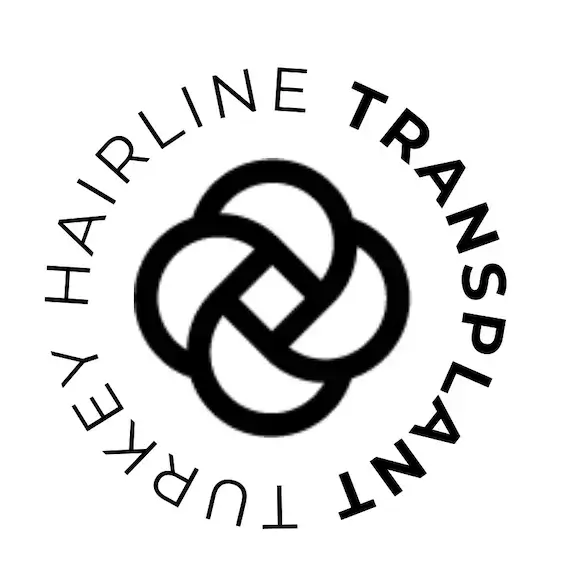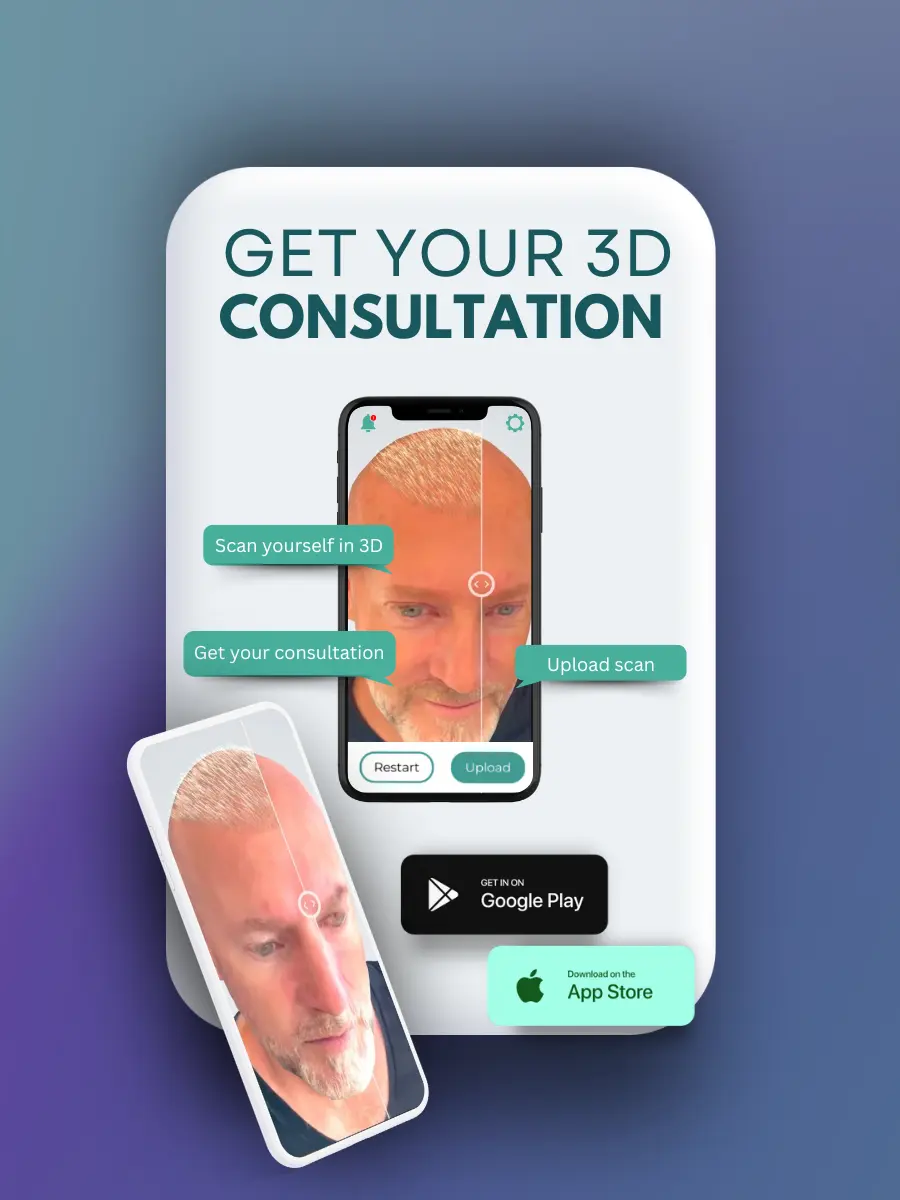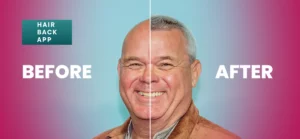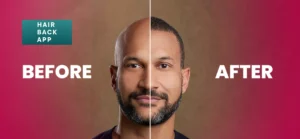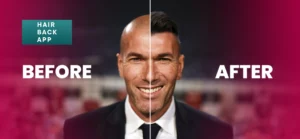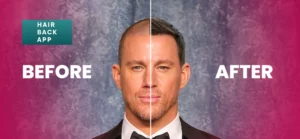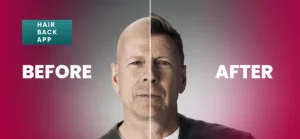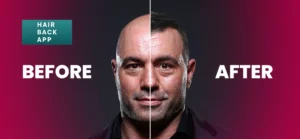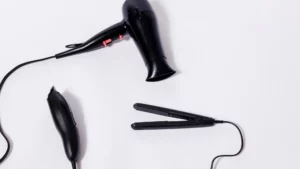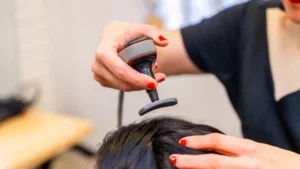Environmental factors on hair health play a crucial role in determining the strength, appearance, and overall condition of your hair.
My name is Emma Wright, your resident hair transplant and restoration specialist. Today, we’ll be discussing the Environmental factors on hair health. In this article, we will explore the major environmental factors that impact hair health and how you can mitigate their effects.
From the air we breathe to the water we wash our hair with, various external elements can cause damage and affect how our hair grows and stays healthy. Understanding these factors is key to protecting your hair and preventing long-term damage.

Key Environmental Factors Affecting Hair Health
Our environment significantly impacts the health and vitality of our hair. External factors such as pollution, UV radiation, water quality, and climate conditions can lead to damage, dryness, breakage, and even hair loss.
Understanding these factors allows us to take proactive steps in maintaining and protecting our hair. Below, we’ll explore the key environmental influences on hair health and offer practical tips to mitigate their effects.
Pollution
Air pollution is one of the most damaging environmental factors on hair health, especially in urban areas where smog, dust, and harmful chemicals are prevalent. Pollutants such as particulate matter and toxins in the air settle on the scalp and hair shaft, leading to a buildup that can block follicles and contribute to scalp inflammation. This can result in dry, brittle hair and may even accelerate hair thinning or loss over time.
How to protect your hair:
- Wash your hair frequently with a gentle, sulfate-free shampoo to clear out pollution residues.
- Consider using a clarifying shampoo once a week to remove deeper dirt and pollutants.
- Apply a protective serum or leave-in conditioner that acts as a barrier against pollutants.
UV Rays and Sun Exposure
Excessive exposure to ultraviolet (UV) rays from the sun can severely damage your hair, just as it harms your skin. Prolonged sun exposure weakens the outer layer of hair, known as the cuticle, causing color fading, dryness, and split ends. In extreme cases, it can even lead to permanent hair damage and thinning.
How to protect your hair:
- Wear a hat or use a scarf to shield your hair from direct sunlight, especially during peak hours.
- Use hair care products that contain UV filters to protect your hair from sun damage.
- Opt for leave-in conditioners that provide hydration and repair damage caused by the sun.
Humidity and Moisture Levels
High humidity can make your hair frizzy, while low humidity can make it dry and brittle. In humid environments, moisture from the air penetrates the hair shaft, causing it to swell and disrupt the natural structure. This leads to unwanted frizz and makes your hair difficult to style. On the other hand, very dry environments strip moisture from your hair, leaving it prone to breakage.
How to protect your hair:
- For high humidity, use anti-frizz products or humidity-resistant styling gels to keep your hair smooth.
- In dry climates, use moisturizing shampoos and conditioners to help restore hydration.
- Consider deep conditioning treatments to lock in moisture.
Water Quality
The water you use to wash your hair can have a significant impact on its health. Hard water, which contains high levels of calcium and magnesium, leaves behind mineral deposits that build up on the scalp and hair. This can result in dull, lifeless hair, clogged hair follicles, and increased risk of dandruff. Soft water, while less damaging, can sometimes make your hair too slippery, preventing proper rinsing of products.
How to protect your hair:
- Install a shower filter to reduce the number of minerals in the water.
- Use a chelating shampoo to remove hard water deposits from your hair.
- Regularly clarify your hair to ensure it remains clean and free of buildup.
Temperature Changes
Extreme temperature changes, such as exposure to cold winds during winter or dry heat in summer, can take a toll on your hair. Cold weather makes hair dry, brittle, and more prone to breakage, while hot, dry air can sap moisture, causing frizziness and dehydration.
How to protect your hair:
- In cold weather, wear a hat or scarf to protect your hair from harsh winds.
- Use a heat-protectant spray before using heat-styling tools or spending time in direct sunlight.
- Maintain a consistent hair care routine with hydrating products to keep your hair resilient against temperature fluctuations.
Post-Hair Transplant Considerations
If you’ve undergone a FUE hair transplant, environmental factors can affect your recovery and the success of your procedure. It’s essential to take special precautions during the healing period. Pollution, UV rays, and other harsh elements can irritate your scalp and disrupt the growth of new hair follicles.
-
Things to Avoid After a Hair Transplant
Immediately after a transplant, there are specific things to avoid after hair transplant. One of the most important considerations is avoiding direct exposure to harmful environmental elements like the sun and pollution, as they can affect the healing process. Additionally, avoid using harsh hair products or exposing your scalp to chemicals or excessive heat.
-
Proper Hair Transplant Aftercare
To ensure your new hair grows well and remains healthy, follow strict hair transplant aftercare routines. This includes keeping your scalp clean, avoiding scratching, and protecting it from environmental damage, especially during the initial healing phase. Pollution and UV rays are particularly detrimental to newly transplanted follicles.
-
How to Sleep After Hair Transplant
Another critical aspect of the recovery process is learning how to sleep after a hair transplant. Elevating your head and sleeping in a semi-upright position can help reduce swelling and prevent contact between your scalp and the pillow, minimizing the risk of disturbing the newly implanted hair follicles. Additionally, covering your scalp loosely can help protect it from environmental factors during sleep.
Conclusion
Environmental factors on hair health are a significant consideration for maintaining strong, healthy hair. Pollution, UV rays, humidity, water quality, and temperature all affect how your hair grows and responds to the environment.
For those who have undergone procedures like a FUE hair transplant, it’s even more important to protect your scalp from these external stressors during recovery. By following proper hair care routines and being mindful of environmental influences, you can maintain the health and vibrancy of your hair in any condition.
